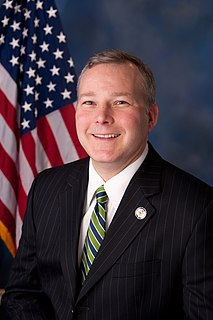A Quote by Herbert Spencer
Feudalism, serfdom, slavery — all tyrannical institutions, are merely the most vigorous kinds of rule, springing out of, and necessary to, a bad state of man. The progress from these is in all cases the same — less government.
Related Quotes
Slavery results from laws, laws are made by governments, and, therefore people can only be freed from slavery by the abolition of governments.... And it is time for people to understand that governments not only are not necessary, but are harmful and most highly immoral institutions, in which a self-respecting, honest man cannot and must not take part.
Nobody is fit to rule anybody else. It is not alleged that Mankind is perfect, or that merely through his/her natural goodness (or lack of same) he/she should (or should not) be permitted to rule. Rule as such causes abuse. There are no superpeople nor privileged classes who are above 'imperfect Mankind' and are capable or entitled to rule the rest of us. Submission to slavery means surrender of life.
The confused mass of rules of conduct called law, which has been bequeathed to us by slavery, serfdom, feudalism, and royalty, has taken the place of those stone monsters, before whom human victims used to be immolated, and whom slavish savages dared not even touch lest they should be slain by the thunderbolts of heaven.
Society in every state is a blessing, but government even in its best state is but a necessary evil; in its worst state an intolerable one; for when we suffer, or are exposed to the same miseries by a government, which we might expect in a country without government, our calamity is heightened by reflecting that we furnish the means by which we suffer.
Feudalism is an economic system where a few people own all the land and the others have no option but to be serfs on such a feudal estate. We now condemn feudalism. We condemn not merely the feudal lords but we condemn the whole structure of rules that sustained feudalism. I am asking people to think similarly about the world economy.
Since the early days, [the church] has thrown itself violently against every effort to liberate the body and mind of man. It has been, at all times and everywhere, the habitual and incorrigible defender of bad governments, bad laws, bad social theories, bad institutions. It was, for centuries, an apologist for slavery, as it was an apologist for the divine right of kings.
What is so bad about big government? My indictment of big government is that it is bad because it attacks liberty, prosperity, progress, harmony, and morality. Thanks to big government, we have significantly less of all of those good things than we would if we had been able to keep government right-sized. Big government is cancerous. Like a cancer, it hurts the body and tends to spread, doing more and more harm as it grows. It is time for some radical surgery.
It is possible to see slavery and serfdom merely as extreme early forms of autocratic management, in which employees had no voice whatsoever in the work process and were viewed not as human beings but as alienated forms of individual wealth. Slavery, in this sense, did not die; it continues in modern dress in contemporary organizations wherever managers exercise autocratic power, unequal status, or arbitrary privileges, no matter how scientific the terminology or postmodern the image
The safest way for a state is to lay down the rule that religion is comprised solely in the exercise of charity and justice, and that the rights of rulers in sacred, no less than in secular matters, should merely have to do with actions, but that every man should think what he likes and say what he thinks.









































